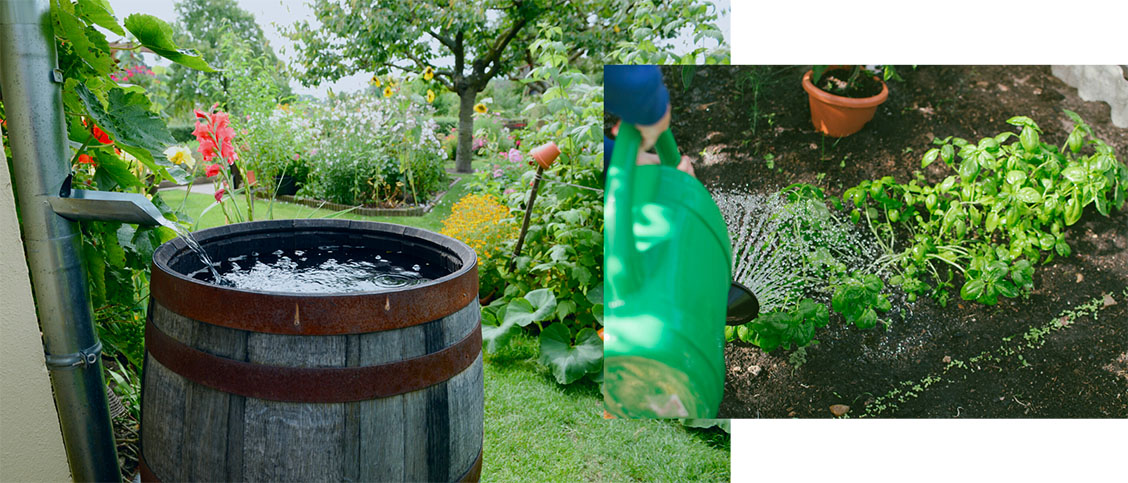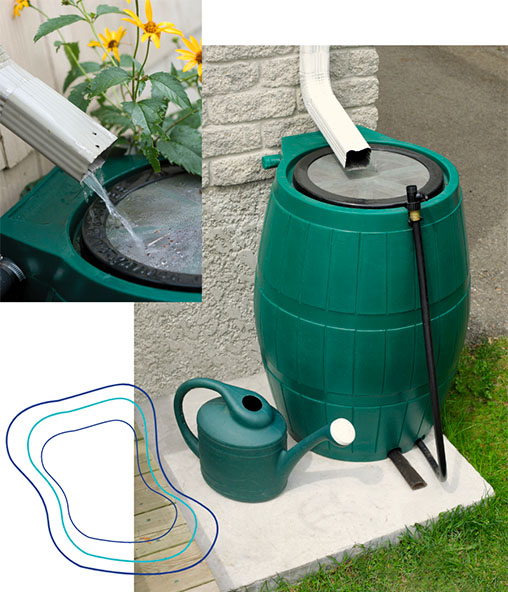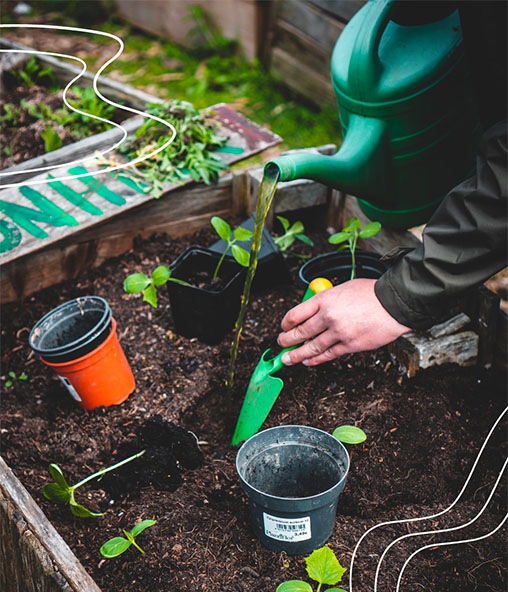Everything you need to know about collecting rainwater for your garden

Imagine if you could spend the summer happily watering your garden or washing your car as often as you like without having to deal with a guilty conscience. Sounds amazing, right? Well, installing a rainwater collecting system could very well be the ideal solution!

Equipping your gutters with an eco-friendly solution — like a rain barrel — is a great way to irrigate your lawn and garden while helping the environment. Read on to discover all the benefits and, more importantly, how to get started.
Is collecting rainwater safe or even legal?
Is it safe? Yes, if done properly. While the water collected is not meant for ingestion, it can be used for other purposes, such as watering your garden, cleaning your home, or even flushing your toilet.
There’s a lot of talk about the legal aspects. Some countries allow it, some don’t. In Canada, the practice isn’t clearly regulated. Certain provinces such as Ontario have laws regulating it, but that’s not the case in Quebec.
So, is it as simple as placing a barrel under your downspout? Not quite. Certain guidelines should be followed in order to collect rainwater safely and responsibly — especially if you intend to use it for a vegetable garden!
What are the benefits of collecting rainwater?
Setting up a rain barrel at home is worthwhile for a number of reasons. The most obvious is sustainable development. Quebec receives an average of 800 to 900 millimetres of rain per year. By installing a rainwater collection system, the average home can collect about 80,000 litres of water per year. That’s the equivalent of about 64 hot tubs.

Instead of ending up in your city’s sewer system, this water can be used in a number of ways, thus avoiding the waste of drinking water! This also helps relieve your neighbourhood’s storm water management system by reducing runoff caused by rainstorms or floods. Likewise, collecting rainwater can help limit water accumulation on your property.
This water supply can then be used to save your garden if your area experiences drought or heat waves. This way you’ll be able to keep your yard alive if city authorities ask residents to reduce water consumption.
Finally, many experienced gardeners say that rainwater is best to water a garden because, unlike tap water, it hasn’t been treated with chemicals. It’s also a good source of soft water and contains higher levels of plant nutrients.
Collecting rainwater: what type of system should I choose?
There are so many to choose from! There is something for everyone, from rudimentary homemade systems to underground water tanks equipped with an electric pump.
Here are a few things to keep in mind if you decide to use a DIY rain barrel:
- Make sure your container is permanently watertight (this one’s obvious).
- Install a filter over the collection point to keep mosquitoes and debris out.
- Choose a container with a lid to limit contamination and keep bugs and other critters out.
- Choose a dark container. This will limit the development of algae, which need sunlight to grow.
- Place your barrel on level ground, near your gutter’s downspout.
- Place your barrel on an elevated surface or at least higher than the surface on which the water will be used — gravity is your friend. And remember, a full barrel is heavy, so make sure the surface is sturdy.
- Add a spigot or hose connection to the bottom of your rain barrel.
- Finally, consider how much water you’ll need. You may need to use more than one barrel.
For a turnkey option, visit your local hardware store. They usually carry several practical, economical, and aesthetically pleasing systems.
If your goal is to make the most of your collected rainwater — by using it in your toilet bowl, for example — you’ll need a more sophisticated system. In Canada’s northern climate, it’s often best to bury these tanks underground to prevent the water from freezing and damaging inside plumbing. These systems are often equipped with an electric pump and can even be connected to underground garden irrigation systems. This can be an interesting option for isolated homes that rely on an artesian well with limited resources. Some solutions are even made in Quebec!
How to reuse rainwater?
In Canada, there are several permitted uses for rainwater, with the most common exception being ingestion. Here are some suggestions:
- Car wash
- Cleaning your house’s exterior
- Watering your garden, lawn, and flower beds
- Connecting your barrel to an irrigation system
- Filling pools and spas
- Washing asphalt driveways
- Flushing your toilet
- Washing clothes
- Feeding a faucet not intended for consumption (such as those on outdoor sinks)
There are so many good reasons for collecting this valuable resource, and it’s probably easier than you think. Get started now!

You might also like:
5 must-visit springtime spots in Quebec
Is sparkling water good for your health?
Protecting the esker: Eska’s role as guardian of sustainability
Comments are closed.
- Published on , in
- The Recycle of Life
share
Read also
See all